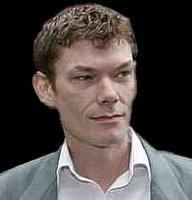By Fiona Raisbeck
SC Magazine
12-11-06
Gary McKinnon, who allegedly hacked into the US military and NASA computer systems, will continue his fight against extradition to the US in an appeal hearing early next year.
SC Magazine
12-11-06
Gary McKinnon, who allegedly hacked into the US military and NASA computer systems, will continue his fight against extradition to the US in an appeal hearing early next year.
 The 40-year-old Scot is accused of hacking into 97 US military and NASA computers in 2001 and his appeal will be heard in the High Court on 13th February 2007.
The 40-year-old Scot is accused of hacking into 97 US military and NASA computers in 2001 and his appeal will be heard in the High Court on 13th February 2007.McKinnon lost his first appeal against extradition in July this year. In that case the appeal judge ruled that extradition to the US was justified, but the former computer systems administrator was granted leave to appeal to a higher court. If McKinnon loses his second appeal his only option to halt deportation is to appeal to the House of Lords. If extradited to the US he could face up to 70 years in prison if found guilty.
The self-confessed "computer nerd" says that the case of the NatWest Three does not leave him feeling confident. "If I don't win the appeal then I can apply for leave to appeal to the House of Lords, but that is not an automatic right," he said. "The NatWest Three applied for leave to appeal to the House of Lords and were refused and everyone was gob smacked because they are hardly petty criminals, it was a big important case."
The so-called NatWest Three were extradited to the US in July this year, in connection with the investigation into an £11.5m fraud at the collapsed energy giant Enron. The bankers' case was the first to be held under the controversial Extradition Act 2003, which is the result of a treaty sanctioned by the UK but not the US.
McKinnon's case dates back to 2001 when it is alleged that he logged on from his London home and, under the codename Solo, hacked into the computers of the Pentagon, US army, air force and NASA. US prosecutors accuse him of accessing hundreds of military machines, which had not been secured properly by officials.
McKinnon was originally arrested in the UK under the Computer Misuse Act 1990 by the National Hi-Tech Crime Unit, although he has never been convicted of an offence. He admitted breaking into the systems using only a dial-up connection and default passwords, but claimed he was looking for evidence of UFO activity.
British police informed him that he would face community service because he did not appear to have caused any damage, but they refused to charge him with any offence.
However, US authorities claim he committed the "biggest military computer hack of all time" and caused around $700,000 (£400,000) worth of damage. Extradition proceedings began in 2005.
More . . .
See Also: UFO Hacker Claims 'Proof' of ET in US Government Computers
No comments :
Post a Comment
Dear Reader/Contributor,
Your input is greatly appreciated, and coveted; however, blatant mis-use of this site's bandwidth will not be tolerated (e.g., SPAM, non-related links, etc).
Additionally, healthy debate is invited; however, ad hominem and or vitriolic attacks will not be published, nor will "anonymous" criticisms. Please keep your arguments/comments to the issues and subject matter of this article and present them with civility and proper decorum. -FW